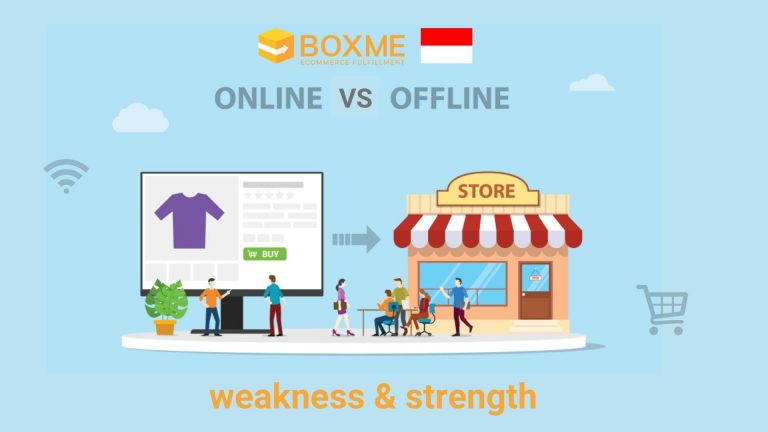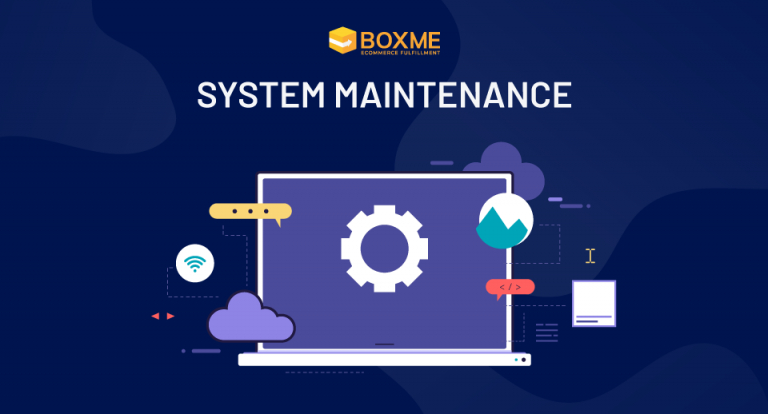Offline Vs Online Store: weakness & strength
Talking about offline and online stores today is quite interesting. This is because of the change in people’s consumption patterns that make the existence of offline and online stores often discussed. The growing digital world makes people choose to shop in online stores because it is considered more practical. But there are still people who are loyal to being consumers of offline stores. Offline andonline stores do not absolutely always give something good and always give something bad. Both have advantages and disadvantages that make consumers sometimes confused when to choose to shop where.
This is not just the case with consumers. As a business, you may still not be able to decide whether to open an offline or online store to keep your business growing. If you are still confused in making choices, perhaps an explanation of the advantages and disadvantages of the two types of stores below can be taken into consideration for you.
Online shopping trends are currently mushrooming in Indonesian society. This is none other than because online shopping is considered very practical and saves time.
No wonder that now many e-commerce popping up with various offers to attract customers. Based on the managed data, indonesia’s e-commerce transaction value in 2018 is estimated at Rp100 trillion.
In 2017, the transaction value was Rp85 trillion, and the previous year reached Rp75 trillion. Marketing Director of PT Electronic City Tbk, Wiradi Wahyudin, claimed the rise of e-commerce does not interfere with the business of its offline stores, because the products sold are different types and segmentation.
OFFLINE STORE
A. Advantages
1. High confidence
Offline businesses have physical stores where consumers can instantly see the products offered. Consumers can choose their own desired model, try with the appropriate size and know the quality of the materials used. Another problem that often occurs inpurchases other than in online stores is color. Often the colors seen in product photos are different from the original. By shopping directly in the store, consumers will get a product that matches the desired color. Hands-on experience with products is the reason why consumers have high trust in offline stores.
2. Easier customer service
With a physical store, service to consumers can be done easily. Consumer demands will not be protracted because it can be resolved directly. Store owners can directly provide sample products, answer consumer questions, respond to complaints and make returns if needed.
3. More secure payment system
Consumers who visit offline stores will usually pay for their groceries in cash. These direct payments make offline store transactions more secure. The money to pay can be directly seen and calculated by the shop owner. In addition, there is no need to worry about payment failures and fraud.
4. Don’t bother shipping
Because the selected product is handed over to the consumer directly after paying, the shop owner does not have to bother making deliveries. Consumers also do not have to worry when the goods that have been ordered arrive and do not have to think about shipping costs that are usually greater than the cost of transportation to the store.
5. Not too much competition
Although online businesses are now mushrooming, offline stores still have their own loyal customers. Therefore, usually offline stores compete with other offline stores as well as not too many.
B.Deficiencya
1. Limited market reach
Offline stores are not dynamic and usually only in one place. This leads to fewer market reach for offline stores. Consumers usually come from the area around the store only. This can depress sales figures if the store owner does not have a specific strategy to control the consumer area. Shop owners should also choose a strategic location to be reachable by more consumers.
2. Requires a physical place
Since theoffline store base is a real area, it takes a place to accommodate all the products marketed. In addition to providing a place, of course, other maintenance is needed so that the building used can last for a long time. Shop owners should also pay attention to the order of goods sold visually to attract the attention of customers.
3. Requires more employees
The number of activities and tasks that must be done to advance the store, it takes more employees as well. As a shop owner, you have to take the time and money to do the hiring. Although only small stores, recruitment should be done seriously in order to get reliable human resources and willing to work together to grow the business.
4. More capital
With the various needs that have been mentioned, of course offline stores require greater capital. Starting from providing products physically, places, place maintenance costs, recruitment of employees as well as employees themselves. Make sure you have enough capital to meet some of these things before deciding to open an offline store.
5. Limited sales time
Offline stores have their own uptime. Offline stores usually operate 10 – 12 hours a day. And all trade transactions can only be done within that time period. The rest of the store is closed and does not serve customers.
6. Limited products and difficulty searching for goods
Due to limited space and stock restrictions to reduce losses, usually products available in offline stores are limited. If the consumer does not get the desired product, it will be difficult to find the same item or replacement directly. Consumers should look to another branch or move to a different store.
Online store
A. Excess
1. Easy to run
With the development of the internet world, nowadays it is very easy to open an online store. Simply by creating an account on social media or various marketplaces, online stores can already be opened. Anyone has the opportunityto sell online, whether teenagers, housewives, even now many small children who have started a business in cyberspace.
2. Wider market reach
The vast reach of the internet world certainly has an effect with online businesses. The distance between shop owners and consumers is not a barrier for both to conduct trade transactions. Online storemarketing is not only limited to the local area, it can be wider even to national and international..
3. The capital required is not too large
Online stores can be formed only with mobile phones and internet quota. Now there is a reseller and dropship system that will make it easier to start a business even without capital. Reseller system makes it easy for people who want to sell something but have not been able to produce their own. Reseller actors will stock items such as shops in general. But the stock of goods for online resellers is less and is only used as an example.
If lucky to get an agent who is in one area, the owner of an online store does not need to stock at all. Simply pick up the product when there are consumers who have ordered only. In addition to resellers, there is a dropship system that makes it even easier. On dropship system there is not even need to stock the goods and do the delivery of the product. A dropshipper simply does promotional and marketing activities only. The provision and delivery of the product will then be handled by the agent who owns the product. This system is easier and requires less capital, but the profit earned is also not very large.
4. Doesn’t need a place
An online store does not require a physical place to accommodate any kind of product and as a place of transaction. Social media accounts and stores in various marketplaces that have been created is a place to conduct the buying and selling process. These shops can be controlled from anywhere. Whether you’re on the go or at home.
5. Requires fewer employees
Because of the simpler system, online store owners don’t have to spend a lot of time and money recruiting employees. The slaughter and delivery of goods can usually be done by one or two people only. However, if your online business grows very rapidly and gets significant orders, you might consider hiring multiple employees to make your work easier.
6. Flexible time
Activities in cyberspace run 24 hours a day, as does the online store. Because there are no hours restrictions, online store owners can still do buying and selling activities even in the early hours of the morning.
7. Products sold vary
This is the reason why many consumers flock to shop online. The items provided vary. This also applies to shop owners. Many prefer to sellonline because it can provide any item and from any agent as long as it is in demand by consumers.
B. Lack
1. Intense competition
The ease of store account creation procedures as well as a very wide reach make competition in online businesses also quite tight. Online store owners not only compete with local merchants, but also internationally.
2. Credibility in doubt
One of the things that makes trust in online stores low is because the goods purchased can not be tried first by consumers. Therefore, the shop owner must make sure all goods sold are of good quality when shipped. If there is an inappropriate product, the shop owner must be responsible for replacing it. Another drawback is that store owners do not serve consumers directly coupled with the large number of scams in online businesses that make the credibility of online stores often in doubt.
3. Internet connectivity
Transactions in online businesses run very fast. Poor internet connectivity even in a short period of time will have a big impact. Online store owners can lose up to millions of rupiah because consumers can easily switch to find other sellers who are able to serve faster.
Now that you know the advantages and disadvantages of offline stores and online, it’s time to decide which business you should run. Does your product become one of the smooth marketing if put in an online store? Or should your product be clearly described so that it should be marketed through an offline store? Whatever the choice, when you’ve successfully set up the store, you still have homework to manage it well. Jurnal becomes one of the software that will help manage your business for the financial part. Its advanced and complete features will facilitate a variety of financial affairs ranging from financial report generation, invoicing, cost logging, inventory tracking, asset management and many others.
>>>3 online sales channels that guarantee success in Vietnam
>>>3 online sales channels that guarantee success in Vietnam
About Boxme: Boxme is the premier E-commerce fulfillment network in Southeast Asia, enabling world-wide merchants to sell online into this region without needing to establish a local presence. We deliver our services by aggregating and operating a one-stop value chain of logistic professions including: International shipping, customs clearance, warehousing, connection to local marketplaces, pick and pack, last-mile delivery, local payment collection and oversea remittance.











